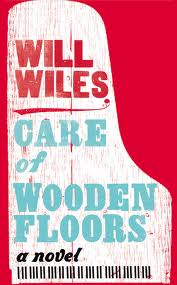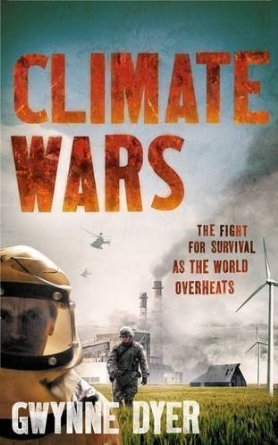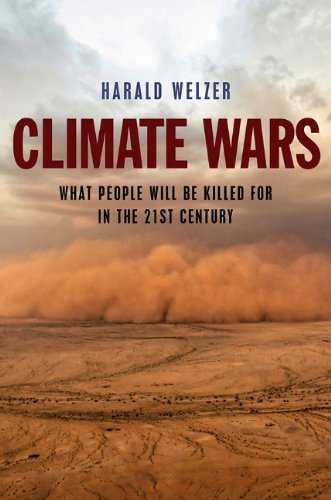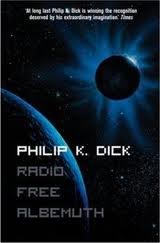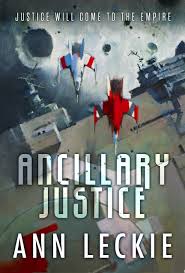 ‘Boy or girl?’ is the first question we ask when we hear about the birth of a baby and, when we hear the answer, we feel that we have begun the process of getting to know the baby as a person. Indeed we have to know the answer in order to be able to refer to the baby as a person at all and stop saying ‘it’, for in English we don’t have a pronoun that denotes personhood without also specifying gender.
‘Boy or girl?’ is the first question we ask when we hear about the birth of a baby and, when we hear the answer, we feel that we have begun the process of getting to know the baby as a person. Indeed we have to know the answer in order to be able to refer to the baby as a person at all and stop saying ‘it’, for in English we don’t have a pronoun that denotes personhood without also specifying gender.
Reading Ann Leckie’s Ancillary Justice, and finding that every new character seemed to be referred to as ‘she’, I began by assuming that all the characters were women or girls. I fairly soon learnt that this wasn’t necessarily the case for the story’s narrator was using a language whose pronouns (as in modern Turkish) didn’t distinguish genders. (We learn this because the narrator refers to her anxiety about speaking in other languages where pronouns do make gender, and other, distinctions.) At this point I concluded that all would soon become clear and that I would learn the ‘true’ gender of the various characters who had so far all been referred to as ‘she’.
This assumption, though, was also confounded. We are never told. And this proves to be an interesting and powerful lesson, for it demonstrates that it is in fact possible to get to know a character, identify with a character, like or dislike a character without knowing whether that character has a vagina or a penis. (Just as we can get to know characters without actually seeing their faces.)
* * *
The choice of narrator is another bold move. Justice of Toren is not a human being but a sentient spaceship. However, as Justice of Toren One Esk, it is also an ancillary, one of an army of captured enemies whose minds have been wiped clean so that their brains and bodies can become adjuncts of Justice of Toren itself. (They are also known as ‘corpse soldiers’). We have a narrator therefore who is one person and many people all at once, and is capable of being in many different places at the same time.
This is pretty neat from a purely story-telling point of view because it allows the author to exploit the advantages of having a first-person narrator who is part of the action, while simultaneously having many of the benefits of a traditional omniscient narrator. To make this even more clever, Justice of Toren is able to monitor physiological data even from characters not directly under her control, and is therefore able to infer a great deal about what other people are thinking or feeling.
But the fragmented nature of the narrator is more than just a story-telling device, for one of the themes of this book is the split and divided nature of human experience. (Even a single human individual, it is noted at one point, is not much more really than a loose coalition of disparate elements, held together by a convenient narrative.) The narrator/main protagonist (herself reduced, in the most recent strand of the plot, to occupying a single body) finds herself up against a powerful antagonist who has countless bodies but who is radically divided against herself, simultaneously knowing things and denying herself knowledge of them. Civilisation itself, one character suggests, is built on this kind of splitting:
luxury always comes at someone else’s expense. One of the many advantages of civilization is that one doesn’t generally have to see that, if one doesn’t wish.
* * *
Another kind of ‘not knowing’ that this book explores is not knowing the future, not ever really being able to know what the consequences of our actions may be. The Radch civilisation, with which this book principally deals, is one in which people are given to divination by throwing handfuls of special discs and studying the way they fall, and this becomes a recurring metaphor for human action: we have no choice but to make throws, but we cannot ultimately control the way our throws will fall. So where does this leave us when making choices? How do we decide what is right or wrong, when we don’t know what the consequences may be? Is it really possible to base a decision on the rightness or wrongness of an act on calculations as to the likely outcomes, or are some acts simply the right thing or wrong thing to do regardless of their subsequent costs and benefits? The questions are not expressed in the dry language I’ve just used, but they are very much alive throughout a book in which most of the main characters, including the narrator, are in some way complicit in atrocity. Indeed the narrator’s very existence as a corpse soldier is itself the result of atrocity.
There are no straightforward good guys and bad guys in this book and the twists in the story are not simply clever plot tricks, but again and again invite the reader to reconsider the moral categories they have been applying to events.
* * *
The society described in this book is an interstellar civilisation thousands of years in the future. It is not just its language that makes no gender distinctions. As far as I could tell, such distinctions are no more significant in Radch society than, say, hair colour is in ours. I think this is not only interesting but actually realistic. It seems to me that biological differences between men and women are pretty important in pre-modern and pre-technological societies (the empirical evidence for this being the sharp distinctions in gender roles that occur in all such societies) but become progressively less so as technological advance reduces the importance of the human body vis-à-vis the human mind.
In other respects, though, Radch society has made rather less progress in shaking off the past. Thousands of years into the future it may be, interstellar gateways and sentient starships it may have, but with its powerful ‘houses’, its ruthless absolute ruler, its polytheistic idols and its aggressive expansionism, it resembles ancient Rome. Indeed, preoccupied as it is with status and territory (high/low, us/them), Radch society is not so very different, in its essence, from a troop of chimpanzees. I fear this may be realistic too though I certainly hope not. The book itself includes reformers and rebels, but does not hold out very much hope of truly radical change in the structure of society. The impulse to modify and reform and the impulse to maintain, control and expand, the book seems to argue, are just two the opposite sides of one those discs that the citizens of Radch use for divination.
* * *
The nature of the plot makes it hard to say much about the story without immediately introducing spoilers. Suffice to say that this book isn’t just full of clever ideas, but also makes you want to keep turning the pages. The characters are interesting and multi-dimensional, the unexpected events frequent. As a general rule, I’m not a great enthusiast for the space opera form of SF, but this is the best new SF book I’ve read in quite a long time.

